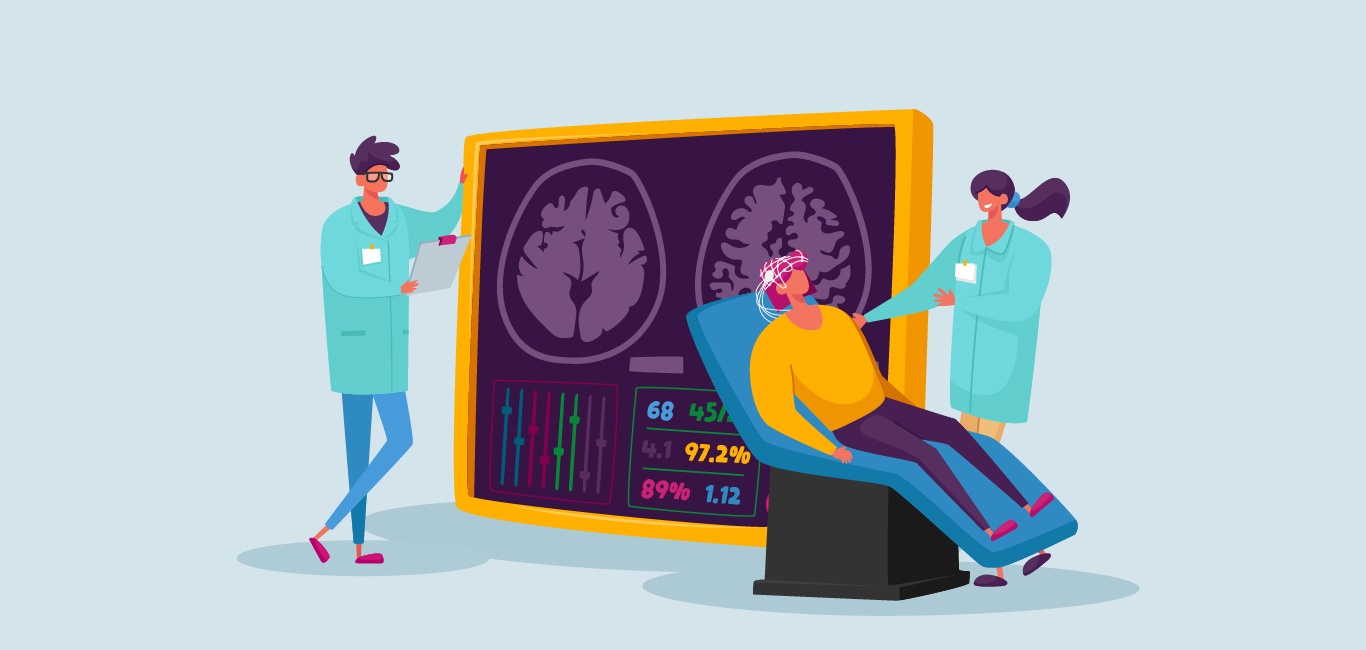
History says mystery author Agatha Christie and illustrious artist Leonardo da Vinci had epilepsy. However, in 2005, Dr John R Hughes from the University of Illinois, USA, found evidence to the contrary, following a deep dive into the lives of 43 historical persons to determine if they had epilepsy.
His findings uncovered that they had various health issues other than epilepsy. For example, anxiety attacks, “fits of spleen,” and alcohol withdrawal symptoms were misinterpreted as epilepsy due to the overlap of epileptic symptoms. Dr Hughes highlights that epilepsy misdiagnosis is not a thing of the past but prevalent to this day. Around 30 per cent of people with non-epileptic seizures are incorrectly diagnosed with epilepsy, according to a 2008 study. Since then, several studies have emerged highlighting how often epilepsy is misdiagnosed.
Epilepsy shows up in the body in diverse ways depending on where the abnormal electrical activity occurs in the brain. “It can be something as simple as pauses in awareness and losing track of time, or it can be severe uncontrolled body movements for a few minutes. Sometimes there are multiple seizures in the span of a few hours,” Dr Wesley Kerr, clinical instructor at the University of Michigan, USA, explains to Happiest Health.
How to get the diagnosis right
“When an individual comes with the first seizure, the primary physician is the first to confirm the diagnosis,” Dr Prithika Chary, neurologist and neurosurgeon at Kauvery Hospital, Chennai, tells Happiest Health. However, if the seizures do not reduce, it is necessary to refer to a general neurologist. If they persist even after six months, the individual must consult an epileptologist, she advises.
Diagnosing epilepsy relies heavily on a detailed history of the individual, encompassing:
- Understanding the symptoms in detail
- Frequency and type of shaking or pausing events
- Previous medical examinations like MRI (magnetic resonance imaging) or EEG (electroencephalograph)
- Video recording of the seizure episode at home, which can help the neurologist reach the correct diagnosis quickly
- All the anti-epileptic medications the individual was taking and, if discontinued, the reasons for it
Once neurologists suspect the seizures could be epileptic, they obtain further clarity through EEG or MRI examinations. An abnormal EEG shows patterns of sharp waves and spikes (epileptiform activity). Reading the EEG correctly is critical to confirm epileptic seizures, and depends heavily on the skills of the neurologist. A 2019 review emphasises the role of expertise in understanding the EEG, given that many times scans are overread or underread, resulting in misdiagnosis.
To avoid misreading the patterns, some neurologists perform an additional video EEG to monitor the real-time status of the individual, say the experts. Such monitoring provides a more conclusive diagnosis of epileptic seizures. Anti-epileptic medicines are prescribed based on the outcome of this diagnosis.
Not all seizures are epilepsy
Several seizures are non-epileptic in origin. For example, convulsive syncope, with fainting spells and shakes, closely resembles an epileptic attack. However, these symptoms happen because enough blood does not go to the brain and is not due to epilepsy. Sometimes, migraines, fatigue, panic attacks, disorientation and dementia can also cause non-epileptic seizures. At other times, the individual may have a functional seizure when the body cannot cope with high stressors like psychosocial and medical trauma, sexual abuse, and mild brain injuries. Moreover, a sleep disorder called narcolepsy can lead to a non-epileptic seizure, says Dr Chary of Kauvery Hospital. Besides, high fever can cause non-epileptic seizures in children below five years.
Where the diagnosis goes wrong
Misdiagnosis of epilepsy is quite common as science has not yet deciphered the complexities of the brain and its functions. In addition, the overlap of epilepsy symptoms with various neurological conditions makes it even more challenging.
The misdiagnosis can happen when a non-epileptic seizure is misread as an epileptic seizure and vice versa, leaving the actual roots of the non-epileptic seizures hidden and untreated.
However, the abnormal EEG may not be due to epileptic seizures. Sometimes, individuals may not be able to seek medical help or express their symptoms clearly to the specialist. This is dangerous as it can lead to unnecessary prescription of antiseizure medications, which are not easy on the pocket and come with many side effects, he explains.
Dr Chary concurs. “Misdiagnosis of epilepsy is unfair to the individual as we often continue anti-epileptic medications for three to five years,” she says.
The other case — an epileptic seizure misinterpreted as a non-epileptic activity — usually occurs in individuals incorrectly identified with psychiatric symptoms. If the doctor misses detecting epilepsy, it can be tricky as the individual is taken off antiseizure medications. This can cascade to more epileptic seizures, especially those that do not stop on their own, leading to damage. In rare cases, this misdiagnosis could contribute to a sudden unexpected death in epilepsy (SUDEP).
How to make it right
Accurate diagnosis is imperative to eliminate misdiagnosis, and this depends heavily on the expertise and skill of medical practitioners and their precise interpretation of the EEG scans. In addition, identifying the causes behind the seizures helps treat them appropriately. Therefore, educating specialists on how to read and identify the errors in EEG scans is vital.
To avoid misdiagnosis of epilepsy, Dr Kerr developed a machine learning tool that prompts doctors to perform additional evaluations. “It is a likelihood scale that uses clinical history to say, hey, this person might have functional seizures, you should do additional testing to verify,” he says.
Dr Chary also emphasises the need to prevent misdiagnoses. She says, “The specialists must practice due diligence to confirm the diagnosis with a good, detailed history about the seizure onset, duration and description, confirmation with EEG and imaging studies and follow up.”
















